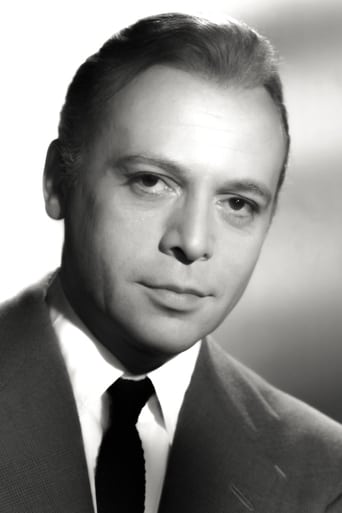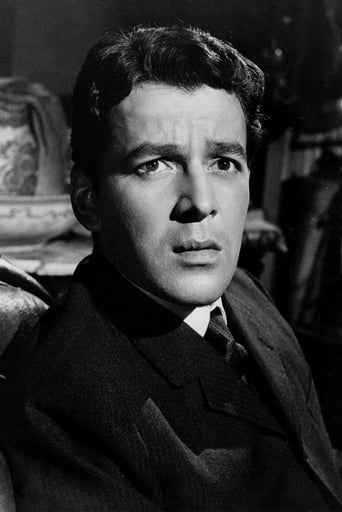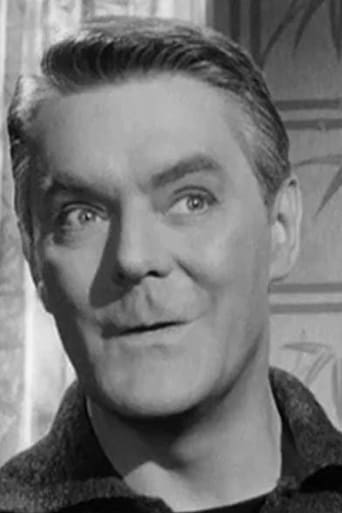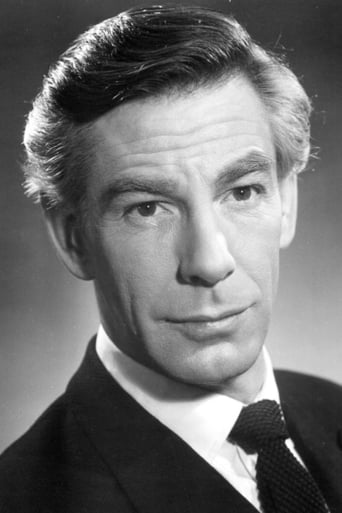Alicia
I love this movie so much
Pluskylang
Great Film overall
Beystiman
It's fun, it's light, [but] it has a hard time when its tries to get heavy.
Jonah Abbott
There's no way I can possibly love it entirely but I just think its ridiculously bad, but enjoyable at the same time.
InjunNose
My favorite version of the oft-filmed Gaston Leroux tale and one of the most attractive costume dramas ever committed to celluloid, Hammer's take on "The Phantom of the Opera" has, unfortunately, gotten lost in the shuffle. Part horror movie, part operetta and part melodramatic love story, it's easy to see how the film might try the patience of present-day viewers...but if you're familiar with this kind of cinematic storytelling, and especially if you're a fan of Hammer Studios and director Terence Fisher, you should see it. Herbert Lom plays a harsh, commanding Phantom, and Heather Sears--by virtue of the fact that she's not movie-star pretty--is a very believable, and likable, Christine. The cast is also enlivened by Michael Gough as the slimy, stereotypically villainous Lord Ambrose d'Arcy, and delightful Hammer regular Thorley Walters as his whipping boy. As Christine's love interest Harry, Edward de Souza is a little stiff, but he's the sort of goofy, overly earnest hero you expect in a movie of this type. The horror is restrained; the Phantom's unmasking doesn't occur until the end of the film (and it's a memorably gruesome moment, courtesy of makeup artist Roy Ashton), but you'll find it worth the wait. Seven and a half stars.
TheLittleSongbird
As far as adaptations of The Phantom of the Opera goes(excluding the Andrew Lloyd Webber musical), this 1962 Hammer version is not as good as Lon Chaney's, which is the best version, but it's superior to the Claude Rains version(though I do prefer Rains over Herbert Lom).It does have its problems, with too much time spent on the opera and the romance and not enough of the Phantom, which does undermine the tension, sense of dread and horror. Sadly, the opera numbers, while musically good, are staged awkwardly and really do slow the film down. The romance is rather saccharine, and the chemistry between the two 'heroes' a little bland. Heather Sears also plays Christine too low-key and the script, while with some intelligent moments, does plod sometimes and has a little too much talk.However, it is very lavishly made (one of the better looking early-60s Hammer films) with truly marvellous interiors of the opera house, rich vibrant colours and opulent costumes. It is beautifully and spine-chillingly scored, though James Bernard would have been an even better fit for composer. The story is less than perfect, but does offer some effective moments. The close up of the eye is really quite chilling and enough to make one jump, while the grasping hand over the stage and the lowering of the gas lamp are indeed very suspenseful, Phantom's back-story is interesting and makes one empathise with him and the ending is incredibly moving.Terrence Fisher's direction is technically accomplished and does evoke some suspense and atmosphere, though his story-telling has been better elsewhere. Regarding the acting, Michael Gough steals the show being chillingly vile as a true slimeball with no redeeming qualities of a character. Herbert Lom is a great contrast as the Phantom, under heavy and effective make-up he is a sympathetic and tragic figure and it is quite a poignant performance, though not without a few scary moments. Edward De Souza is charming.In conclusion, not among the best of Hammer by a long shot and could have been better, but still manages to be pretty good. 7/10 Bethany Cox
Scott LeBrun
The enduring story gets another imagining thanks to Britain's legendary Hammer Studios. The title character, a professor / composer who had his music for an opera stolen by a nefarious opportunist, is badly disfigured when trying to prevent programmes from being printed without his name on them. Now he's fixated on a young opera singer whom he wishes to sing only for him. This version unfortunately feels a little rushed and not quite meaty enough, with too little dramatic weight. It just feels a little *flat*, which is too bad. It puts a new spin on its main character, however, that may either interest or put off the viewer, turning The Phantom into a tragic hero rather than a figure of any true malice. It is quite possible to feel sympathy for the character, as played by the talented Herbert Lom, and of course one can't help but be utterly disgusted with his nemesis, the sleazy Lord Ambrose D'Arcy, portrayed with his typical gusto by Michael Gough. Gough easily walks away with the movie. Compared to these two, the performances of pretty Heather Sears as Christine and likable Edward de Souza as Harry just aren't that entertaining. Despite typically meticulous production design / art direction (by Bernard Robinson and Don Mingaye), cinematography (by Arthur Grant), and set decoration, this isn't as thickly atmospheric as other Hammer productions, and fails to really inspire any sort of menace or tension. It's a shame, knowing that Hammer could easily have done better with this material. Gough, certainly, makes it all worthwhile, and the appearances of old pros such as Thorley Walters, Harold Goodwin, Martin Miller, Marne Maitland, Miriam Karlin, Patrick Troughton, Michael Ripper, Miles Malleson, and Ian Wilson are great fun to watch. The sequences in the sewer lair are the best, with the operatic numbers, although hardly gratuitous, tending to slow things down. It's still a good film but its full potential isn't realized. Seven out of 10.
bensonmum2
Almost every movie fan knows the story – an opera house is beset with problems as a new production is set to open. At first it's strange, annoying occurrences like missing music or damaged instruments. But it goes beyond mere annoyance when a stagehand is murdered. What evil force is behind this series of events? As a fan of Hammer, there's a lot here to enjoy. The first thing I always notice, and it's hard not to, is the film's "look". Hammer made some wonderful looking movies and The Phantom of the Opera just might be at the top of that list. Beautiful is the way I would describe it. The colors, the sets, and the costumes are so incredibly pleasing to the eye. Everything from the rich burgundy curtains on the opera stage to the simple, but effective mask worn by the Phantom are perfect. You could spend three times the budget of The Phantom of the Opera and not come up with something that looks this good.Terence Fisher directed some of Hammer's best films. And his work on The Phantom of the Opera is among his best. I've read complaints that Fisher lacked imagination and was, at best, a workmanlike director who was lucky to be "in the right place at the right time". With The Phantom of the Opera, Fisher shows more artistic touches and allows the camera to be more fluid than at any time I can remember. Fisher was aided by an impressive cast. Other than Heather Sears in the female lead, the acting is solid. Edward de Souza, Thorley Walters, and Herbert Lom are all great in their respective roles. But, as usual and as expected, Michael Gough as Lord Ambrose d"Arcy steals every scene in which he appears. He's just so deliciously evil and over-the-top.There are several little moments in The Phantom of the Opera that make it special. Scenes like those involving the rat catcher or the opera house cleaning women might seem like throwaway moments, but they help add life and interest to the film. Or the dinner scene when Sears character turns down d'Arcy's advances. The look of contempt on Gough's face as he stalks out of the restaurant is priceless. Very well done!In the end, while there have been any number of versions of The Phantom of the Opera made over the years, Hammer's version is my favorite. It's definitely a movie that any Hammer fan or anyone interested in learning about Hammer should see.







